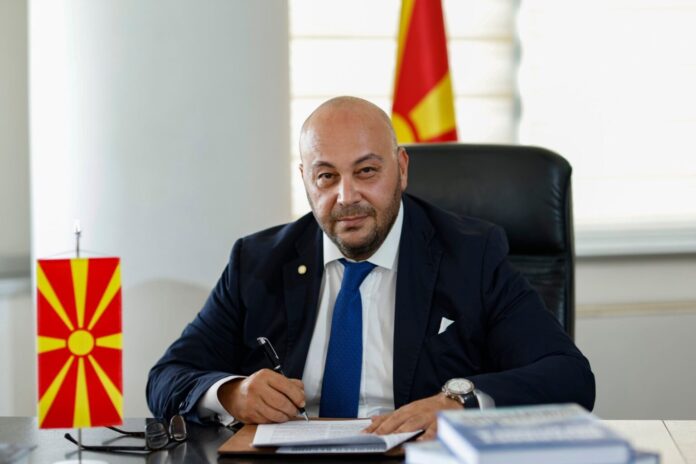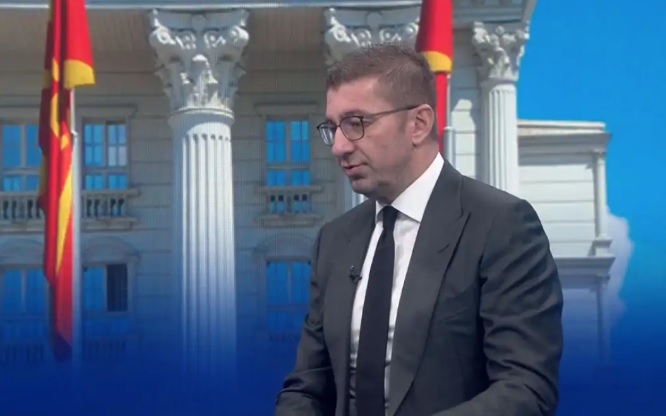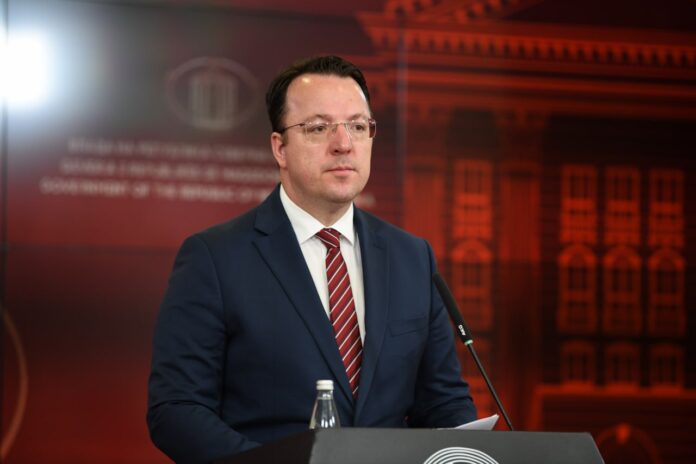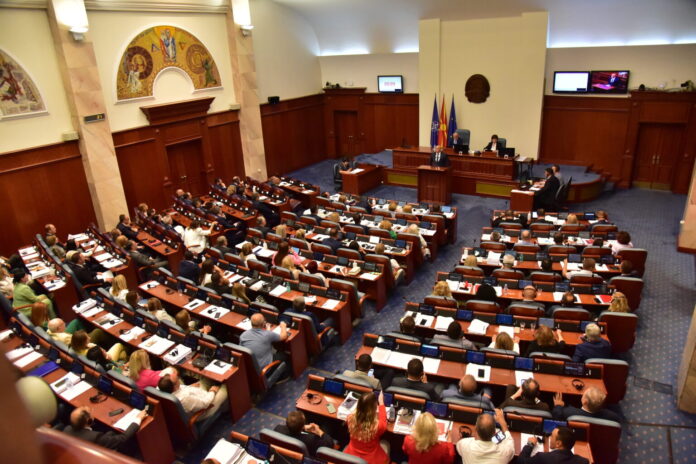Kostadinovski: Administrative Court’s decision will produce legal consequences, in no way ex officio there is no review of our decisions

The decision of the Administrative Court will produce legal consequences and not that we have nothing to say, but we will leave to see science and profession, if there is a need for the Constitutional Court to eventually comment, says Constitutional Court President Darko Kostadinovski.
Asked how they will reflect and what they have taken after the Administrative Court’s decision to annul Elizabeta Dukovska’s election for a constitutional judge, Kostadinovski emphasized that « we do not accidentally qualify this situation as a legal precedent ».
– This means that among the judges we have different stands that this means to the constitutional judiciary. I have my own attitude, but I will refrain because at this point in force is the attitude we took yesterday and I have to stand on that position as a judge – said Kostadinovski.
Asked what will happen to the constitutionality initiative of the Prespa Agreement, given that Elizabeta Dukovska voted for her, whose election for a constitutional judge was annulled by the decision of the Administrative Court, Kostadinovski said that « and in this issue I stand to the position that our decisions are in no way. »
The Constitutional Court, Kostadinovski said, long at a working meeting yesterday extended the new legal situation, after, as he emphasized, faced a « legal precedent that in 60 years of the Constitutional judiciary no constitutional court has faced ».
-We have been, we do not comment on the decision of the Administrative Court, that it is a legal precedent, that that legal precedent creates a legal state and that legal situation creates legal implications. We came out with a statement and we have already said the first legal consequence of that situation, meaning delaying the preparatory session on the Law on the Use of Languages. Immediate consequence of this situation – said Kostadinovski.
Kostadinovski, clarified that the concept of « res judicata » or judgmental work on any case in the constitutional judiciary, is not identical to the regular judiciary and that the Constitutional Court has the right to « make a different decision if there are grounds for different decision -making ».
-This are two completely different legal institutes of different meaning. In the constitutional judiciary « Res Judicata » has a different meaning. This means that for any case that this court has decided, today, a month ago, three years ago, 30 years ago, at the initiative of any citizen for the same thing, which has already been judged, if the court is supplied with additional circumstances, with strong arguments, to convince the judges who may have participated, and may not have participated in the court. So our act allows us to make a different decision if there are grounds for different decision making, and the basics for different decision making are numerous. So, in terms of this issue, I stand by the court’s stance that our decisions are final and executive and by no means, there is no ex officio review our decisions- said Kostadinovski.
The Constitutional Court, in a statement yesterday, informed that there is no commentary on the Administrative Court’s verdict on the annulment of the election of constitutional judge Elizabeta Dukovska, noting that the Trial of the Judicial Council, the Parliament and the Administrative Courts, led to the creation of a legal precedent that has so far faced any composition. This precedent, according to the court, has significant legal implications for its further action.
The Constitutional Court also reminded that, pursuant to Article 112 paragraph 2 of the Constitution, its decisions are final and executive, and will not review the decisions in which the judge involved in the Administrative Court’s judgment.
Due to the new situation, the Constitutional Court also ruled to postpone the preparatory session on the case related to the Law on the Use of Languages, which was scheduled for June 19, 2025, as Dukovska is the reporter of this case, and in addition, the court has concluded that the case should be in full.







